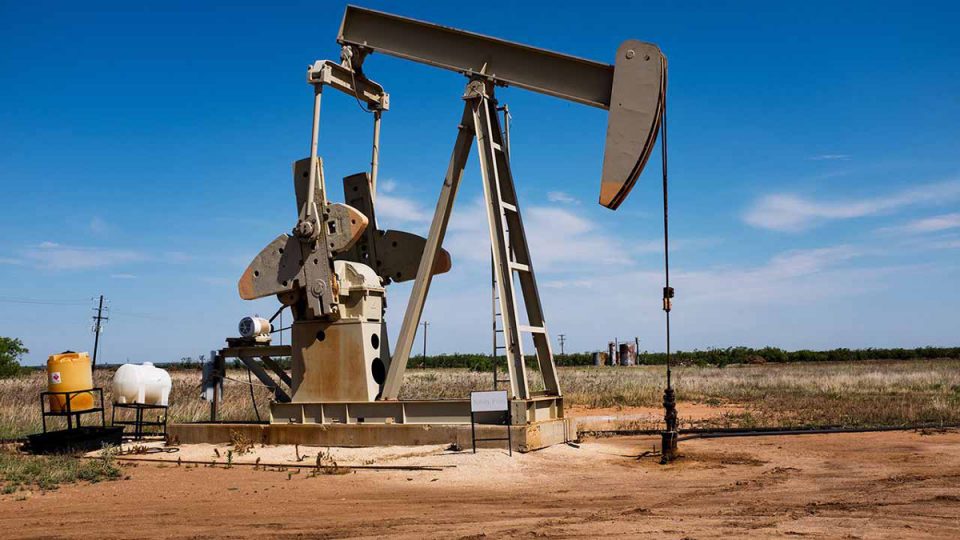Financial derivatives warns of repercussions if Nigeria’s oil production shortfall continues
With about 90 per cent Nigeria’s dependence on oil export for its foreign exchange earnings, there could be a worsening of the country’s trade balance as well as a negative effect on its revenue, Lagos-based Financial Derivatives Company (FDC), has stated.
In the June edition of its economic update, the Bismarck Rewane-led organisation noted that oil prices were also expected to trade lower in the coming months, with weakening global demand, on the back of efforts of central banks to rein in inflation, which will also impact the Nigerian economy.
Nigeria has been unable to produce its Organisation of Petroleum Exporting Countries (OPEC) crude oil allocation of 1.74 million barrels per day, only drilling between 1 million barrels and 1.3 million this year.
A few weeks ago, the international oil cartel slashed Nigeria’s projected output for next year, pegging it at 1.38 million bpd due to the country’s prolonged lack of production capacity.
In May, the FDC said the price of oil traded lower compared to April, with on the average, the price of Brent crude dropping by 6.16 per cent to $75.49 per barrel from $83.66 in April.
Continuing, it recalled that oil prices fell by six per cent to close at $73.54 on May 31, after touching a high of $78.36 on May 24, with the decline attributed to the uncertainty that surrounded the US debt ceiling talks and Chinese demand concerns.
On the other hand, the FDC noted that oil prices rose by 3.14 per cent from $74.28 at the beginning of June to $76.61 on June 19, owing to further oil supply cut (1mbpd) by Saudi Arabia coupled with a pause in US Fed monetary tightening.
However, it stated that this gain had been wiped in sustained week-long losses between June 19 and June 23.
“Oil prices are likely to trade lower in the near term. Lower oil prices will be supported by weak global demand as central banks remain aggressive towards inflation and a weaker Chinese post-covid economic recovery. China is the second-largest importer of crude oil.
“Lower oil prices would reduce export earnings, decrease government revenue, and worsen the country’s trade balance. Crude oil accounts for 89.5 per cent of total exports. Also, the country’s inability to meet its production quota could further weigh on fiscal revenue and decrease the allocation of funds from the federal government to states,” it warned.
On the hand, in the coming months, the FDC predicted that gas prices would remain high due to forecasts of a warmer weather condition in Europe, which could increase the demand for gas for cooling.
Liquefied Natural Gas (LNG) is the second-largest export commodity in Nigeria, accounting for 10.4 per cent of total exports. Higher gas prices will help to compensate for the shortfall caused by lower oil prices, the report highlighted.
“Gas prices rose in the month of May despite subdued demand and high gas stockpiles in Europe. LNG increased by 4.52 per cent to close May at $2.31/mmbtu, up from $2.21/mmbtu at the beginning of the month.
“On average, it rose by 4.07 per cent to $2.30/ mmbtu compared to $2.21/mmbtu in April. Similarly, gas price climbed by 13.66 per cent to close June 19th at $2.58/mmbtu from $2.27/mmbtu. This was primarily due to supply outages in Norway and the planned shutdown of a key production site in Netherlands,” it added.
Despite immense natural resources, the FDC stressed that the Nigerian economy was challenged by various macroeconomic issues and performs below its peers.
For instance, it stated that on the average, Nigeria’s economy has only grown 1.25 per cent in the last five years, with unemployment at a record high and 133 million Nigerians ‘multi-dimensionally’ poor. These problems, it pointed out, make it imperative for the country to explore innovative solutions to address them.
By comparison, it stated that Singapore, a small island nation in Southeast Asia with limited natural resources, has experienced remarkable economic growth in recent years. Quoting the World Bank, it said that Singapore’s economy grew by 7.6 per cent in 2021, up from 3 per cent in 2015.
“This growth can be attributed to the expansion of its manufacturing and financial sectors, buoyed by the promotion of innovation. Through investing in advanced technologies and embracing automation, Singapore has been able to improve productivity and efficiency, leading to higher output and lower costs,” the report stated.
Urging Nigeria to embrace innovation, the FDC explained that the financial sector was another area where innovation had played a significant role in Singapore’s economic growth.
The firm added that Nigeria could emulate Singapore’s success through the diversification of its economy beyond the oil sector. This, it explained, involves promoting and supporting other sectors such as agriculture, manufacturing, services, and technology.
“With increased investment in these sectors and encouraging value addition and the export of processed goods, Nigeria can reduce its reliance on oil and create more inclusive economic opportunities.
“Also, Nigeria should prioritise investments in education and skills development to build a skilled workforce capable of driving innovation and entrepreneurship. Enhancing the quality of education at all levels, aligning it with market needs, and promoting vocational training will empower individuals and enhance productivity across sectors.
“Similarly, a robust infrastructure is vital for fostering innovation and economic growth. Nigeria needs to focus on improving its physical infrastructure, such as transportation networks, power supply, and internet connectivity,” FDC noted.




